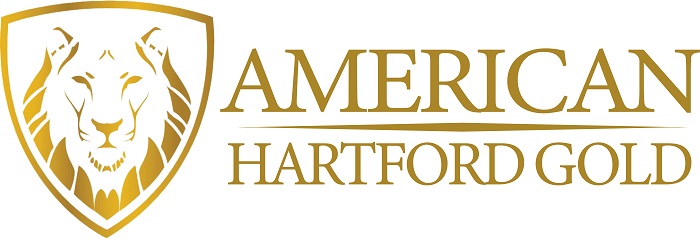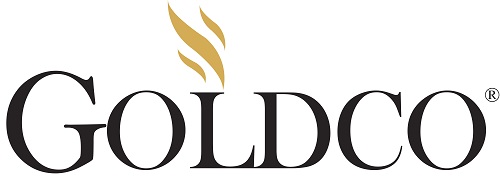Last Updated on February 15, 2024 by Ben
How Does a 401k Work When You Retire
You pay into your 401(k) throughout your working life to retire comfortably later on. But what happens when you retire? In a nutshell, it’s time to move from saving money to generating money with your funds.
How do your retirement savings grow? When you retire, you are no longer contributing to your 401(k), and you certainly don’t have to pay any income taxes on those pre-tax contributions. So, right off the bat, you’re contributing $0 to your 401(k). However, you do start pulling money out of your 401(k) to pay for your retirement living expenses.
What to Do With Your 401(k) When You Retire
After you retire, your 401(k) plan works is determined by what you do with it. You may opt to begin taking qualified withdrawals once you reach age 59 1/2—as well as the conditions of your firm—or whether you want to continue investing in the plan.
You can allow your account to continue to build value until you are compelled to make withdrawals. Converting your company-sponsored 401(k) into an adjustable Individual Retirement Account (IRA) is another alternative. How you handle withdrawals in retirement will depend on the particular 401(k) plan.
401(k) Withdrawal Age
You may want to take money out of your IRA before you retire. These include tax-advantaged retirement accounts, such as 401(k)s, which ensure that you have adequate funds when you retire and cease working. You could withdraw cash from your account before retiring.
However, if you give in to those urges, you will almost certainly be penalized—early withdrawal restrictions have been set up to prevent this.
The typical retirement age for Americans is the mid-60s. However, there is a little more leeway with retirement savings plans, such as with company-sponsored 401(k)s. The beauty of investing early in your retirement is that you can start taking distributions from the 401(k) before 59½ years old and incur no early withdrawal penalty provided, again -you’re at least59 ½
Early Withdrawals: The 401(k) Age 55 Rule
Whenever you retire or lose your work when you are 55 years old but not yet 59½ years old, you can avoid the 10% early withdrawal penalty for taking money out of your 401(k).
However, this exemption only applies to your old employer’s 401(k). This does not apply to money still in an earlier employer’s plan, nor does it apply to IRA funds.
You Will Be Taxed on 401(k) Distributions
When you contribute to a traditional 401(k), you’re usually making contributions on a pre-tax basis, which lowers your taxable income throughout your working years.
Because the money was not taxed when you contributed it, you will have to pay tax on this money as ordinary income when you begin taking distributions from your 401(k). This means that you won’t be able to keep everything you’ve accumulated. If you take out too much money in a single year, you may put yourself into a higher tax bracket, which means the government will get a larger percentage of your assets.
You will not pay tax on the amount you take out of a traditional 401(k) if it is taxed. If the account is taxed, you will not have to pay tax on funds saved in a Roth 401(k). If your funds are in a regular account, you may convert them to a Roth by paying tax on the amount you convert in the year you switch. You can withdraw money from a Roth IRA tax-free when you retire.
So, in retirement, how does a 401(k) work? While you may roll over to an IRA, the decision ultimately lies with you and how you want to use your lifetime savings to meet your future living expenses. An expert financial counselor who knows the ins and outs of retirement income and tax planning can assist.
5 Options for Using Your 401(k) When You Retire
After you retire, your 401(k) options will be the same as those of any other 401(k) participant who terminates employment. IRS officials refer to this as “separation from service,” which refers to any cause for leaving your employment, whether quitting, being laid off, or retiring.
After a person joins the workforce, they have several alternatives for their 401(k) savings. Here are five choices and IRS rules to be aware of.
- Keep Your Money in the 401(k)
You may leave your money in your 401(k) after retirement if the account balance is at least $5,000. This might be a smart move if you enjoy the investments offered by the plan. Keep in mind that after you leave your job, you will no longer be able to make additional contributions to your 401(k).
- Transfer Your 401(k) to an IRA
If you’re planning on retiring from your job, it’s important to know the best way of handling retirement funds. One option is transferring 401(k) balances into an IRA and taking advantage any tax benefits that come along with this move! This is a great way to diversify your investment portfolio and reduce risk. You can request either an immediate transfer or 60 days worth of funds, which will allow you more time for consideration before making such important decisions with regards towards retirement plans!
Direct Rollover: You can either request that your employer move your 401(k) assets to a different investment firm managing your IRA or direct them to do so yourself. A direct rollover is a tax and penalty-free.
60-day Rollover: If you get a distribution from your 401(k) paid directly to you, you have 60 days to deposit part or all of the funds into your IRA. Taxes are taken out of the payment, so you’ll need to raise further money to roll over the entire amount.
- Take out a Lump Sum From Your 401(k)
When you retire, you can withdraw all or a portion of your 401(k) balance. Note that withdrawals from pre-tax portions of your traditional (before-tax) 401(k) contributions are taxable as income.
Those who retire before the age of 59.5 may be charged 10% for taking money out if they do so early, but not if you wait until your golden years to withdraw from a retirement account without penalty – that is unless there’s another tax advantage involved
- Convert Your 401(k) Into an Annuity
This approach is not one that many people are aware of, but 401(k) plans may allow you to change your savings into an annuity.
A life insurance policy that converts a lump sum 401(k) balance into a monthly income stream right away is known as an immediate annuity. The payment amount is guaranteed, but this type of income may not be suitable for everyone.
It’s critical to note that guarantees are based on the issuer’s ability to pay claims.
Suppose you change a variable-rate mortgage to a fixed rate. In that case, there could be additional problems, including losing access to your principle in the case of an emergency and possibly receiving less money back through annuity payments due to death.
- Take 401(k) Required Minimum Distributions at Age 72
The IRS is always making sure that you’re following their rules, and they have a list of guidelines for your retirement account. The first thing on the list? You must take minimum distributions from taxable (before-tax) contributions made in your 401(k). You must begin taking RMDs by 72 and cannot withdraw more than annual inflows into the account during any one year.
If you choose to keep money in your 401(k) after you retire, it’s critical to consider RMDs when calculating your retirement plan.
The IRS calculates your required minimum distribution (RMD) using a life expectancy factor that considers your age, the year of withdrawal, and the end-of-year balance of your retirement account. The IRS uses your life expectancy factor to determine how much you need to save for retirement each year.
Recommended IRA Companies
Augusta Precious Metals



www.augustapreciousmetals.com



Star Rating
Augusta Precious Metals is a gold IRA provider that offers a variety of precious metals IRA products to assist individuals who wish to protect themselves against inflation risks (or merely diversify their portfolio) with precious metal assets.
Augusta Precious Metals can help retirees protect their money by adding precious physical metals to their retirement portfolio. You can purchase the company and store the metals in an IRS-approved depository.
You get access to our entire gold and silver professionals team when you select Augusta. You can rely on us for help with your account for as long as you have it.
American Hartford Gold



www.americanhartfordgold.com



Star Rating
American Hartford Gold is a company in Los Angeles, CA, that helps people invest in precious metals. This includes gold, silver, and platinum bars and coins. They provide physical delivery to your doorstep or inside a retirement account like an IRA, TSP, or 401K.
The company helps its customers achieve greater security for their future by adding “haven” assets to their portfolios. Customers receive only the highest quality gold and silver coins, offered at competitive prices with 100% customer satisfaction guaranteed.
American Hartford Gold has a good rating with the Better Business Bureau, and customers like it on review platforms like Trustpilot and Google. Additionally, they have been recognized as the #1 Gold Company by the prestigious Inc. 5000’s 2021 list of America’s fastest-growing private firms.
Goldco



www.goldco.com



Star Rating
With over a decade of expertise in assisting customers in safeguarding their retirement funds, Goldco is the world leader in precious metals. A Goldco Specialist can use a Precious Metals IRA to safeguard your IRA, 401(k), 403(b), TSP, savings, or similar tax-advantaged retirement account.
Goldco is a precious metals brokerage firm that also offers direct sales of gold and silver to its clients. If you have cash in a savings account, a Goldco Specialist can help you diversify it with precious metals.
The BBB and the BCA have given them an A+ rating, while they are considered AA by the Better Business Bureau. Thousands of happy clients and good comments have resulted from their high-quality customer service, dependability, and ethical business conduct.
Final Thoughts – How Does a 401k Work When You Retire
Understanding what to do with your 401(k) when you retire is crucial in determining what to do. Some people may find that leaving their retirement assets in their 401(k) plan is the best option, while others might prefer to move their 401(k) balance into an IRA.
Your decisions may be impacted by various things, which is why it may be favorable to plan and work with a financial counselor to discover the finest alternatives available to you.


